FORT LEE, Va. (March 11, 2010) -- The two-week U.S. Army Culinary Arts Competition will check off another year March 12 when it wraps up its 35th awards ceremony.
For more than three decades, it has been a stage of sorts; a showcase in which contestants are afforded the opportunity to put their skills up against the best the military has to offer.
But it is also a unique military food service experience - one that has a varied impact beyond the competition itself. Chief Warrant Officer 4 Russell Campbell is the incoming chief of the Culinary Skills Division, Joint Culinary Center of Excellence, host of the event. He said the American Culinary Federation-sanctioned CAC is one of the best means for food service personnel to learn and grow.
"We expose them to the various techniques and talents of our staff to help put the tools in their ruck sack to take with them," he said "We show them steps that will help them become a certified culinarian, certified sous chef or a certified executive chef one day."
More than 200 Soldiers, Sailors, Airmen, Marines and Coast Guardsmen from installations all over the world converge at the event for the opportunity to load up their ruck sacks.
Participants can compete in more than 20 different categories, get one-on-one-critiques from ACF judges, attend many classes taught by professionals and tryout for the U.S. Army Culinary Arts Team.
Furthermore, they can earn certifications, learn from their peers, share in the spirit of competition and soak up the camaraderie. All of that adds up to one enriching event, said Sgt. Alicia Hight, a member of the Fort Monroe Culinary Team.
"It's just thrilling," said the 10-year Soldier, who made her first CAC appearance in 2006 and who has returned almost every year since. "I can't even describe it. It's like being in the Miss America competition. You have all these people coming from all over to compete, to see who's the best ... It's just fun. It's what I live for."
The CAC experience usually starts before the competition gets underway. Many participating installations hold tryouts prior to the CAC and begin training six months out. Most of the competitors have crammed the maximum amount of training into the minimum amount of time. Spc. Karen Rennles, a Fort Lee Culinary Team member and second-time competitor, said her team put in tons of practice time several months prior to the competition.
"Just like anything else, you practice, practice, practice, until you can do it in your sleep," she said. "Whatever you practice, do twice as much, and then next year, do it twice as much as you did this year."
Competing in the CAC is like practicing all over again; only the circumstances are a tad different: The pace is rapid, and the stress is daunting. The result is something that can be likened to a compressed learning experience, said Spc. Austin O'Neil, Army Reserve Culinary Arts Team.
"I've learned more in the past four days than I probably did in the past six years," he said during his team's performance in the field competition. "There are a lot of things that you can't learn in a single job as far as cooking, but here you get to observe so much more. For example, I've never done (cake) decorations before. Now I'm doing icing; I'm doing everything."
Spc. Jeffrey Vaughan, another Army Reserve team member, has figured out that a two-week period is hardly enough time to absorb everything. His remedy: keep coming back. This is his fifth year competing.
"I learn a little something new each time I come," said the 28-year old. "I incorporate what I learn within the next year that I compete."
Vaughan is typical of the event's many 20-somethings: passionate, dedicated and willing to learn. Those qualities help to push them through the hectic days of the competition in which sleep is scarce and the pace is exhaustive. That's a small price to pay compared to all that can be gained, said Senior Airman Ghil Medina.
"It's a lot of work, but I've met a lot of great chefs out here; a lot of people who are knowledgeable about the career field, about food service, and about culinary arts," said the 22-year-old Joint Base Langley-Eustis Culinary Team member. "Whenever they're around, I ask questions, and they are willing - they are very, very willing - to teach you what they know so that you can acquire a skill from them."
That's what Campbell and the JCCoE want: military members to come, acquire skills, share those skills and provide a better service for those who defend the country. It's something that Medina can't wait to do when he returns to duty.
"This is a lifetime experience," he said. "All of the skills and knowledge I've obtained; I want to bring it back to my home base, to teach our airmen to improve and make a contribution to culinary arts."
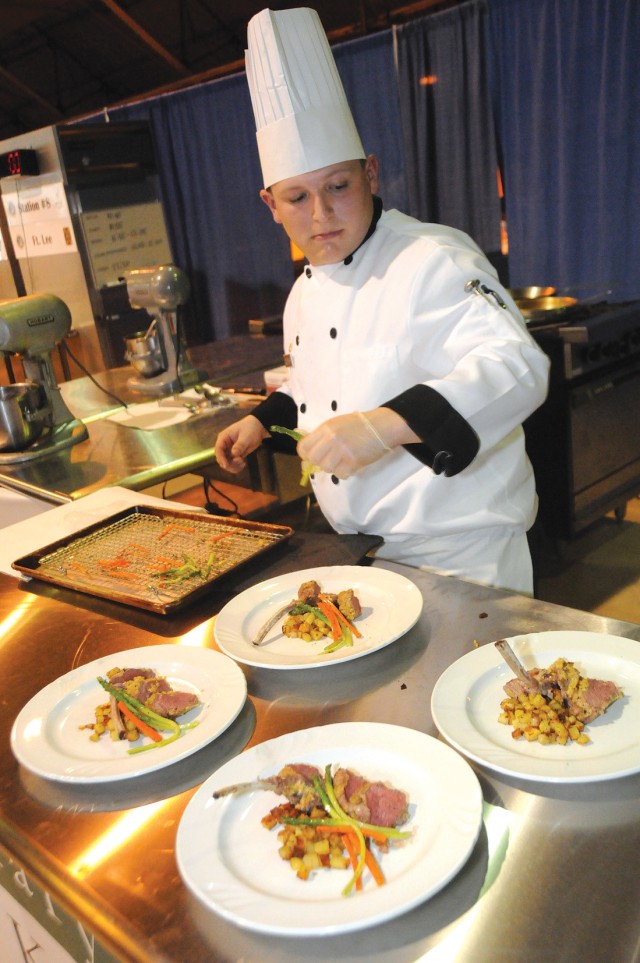
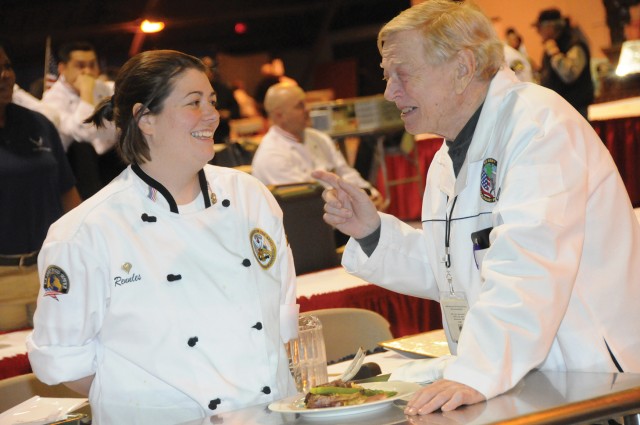
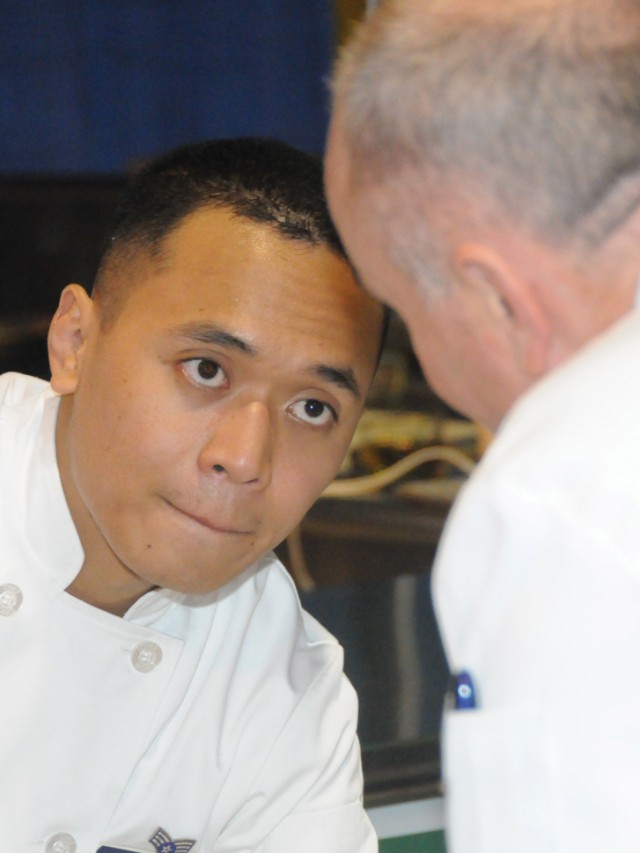
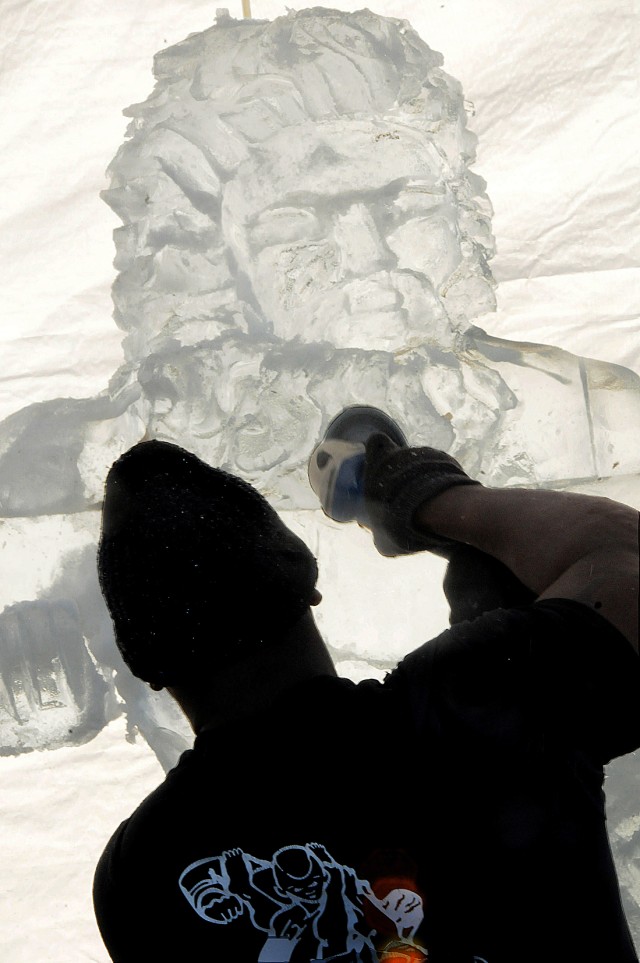
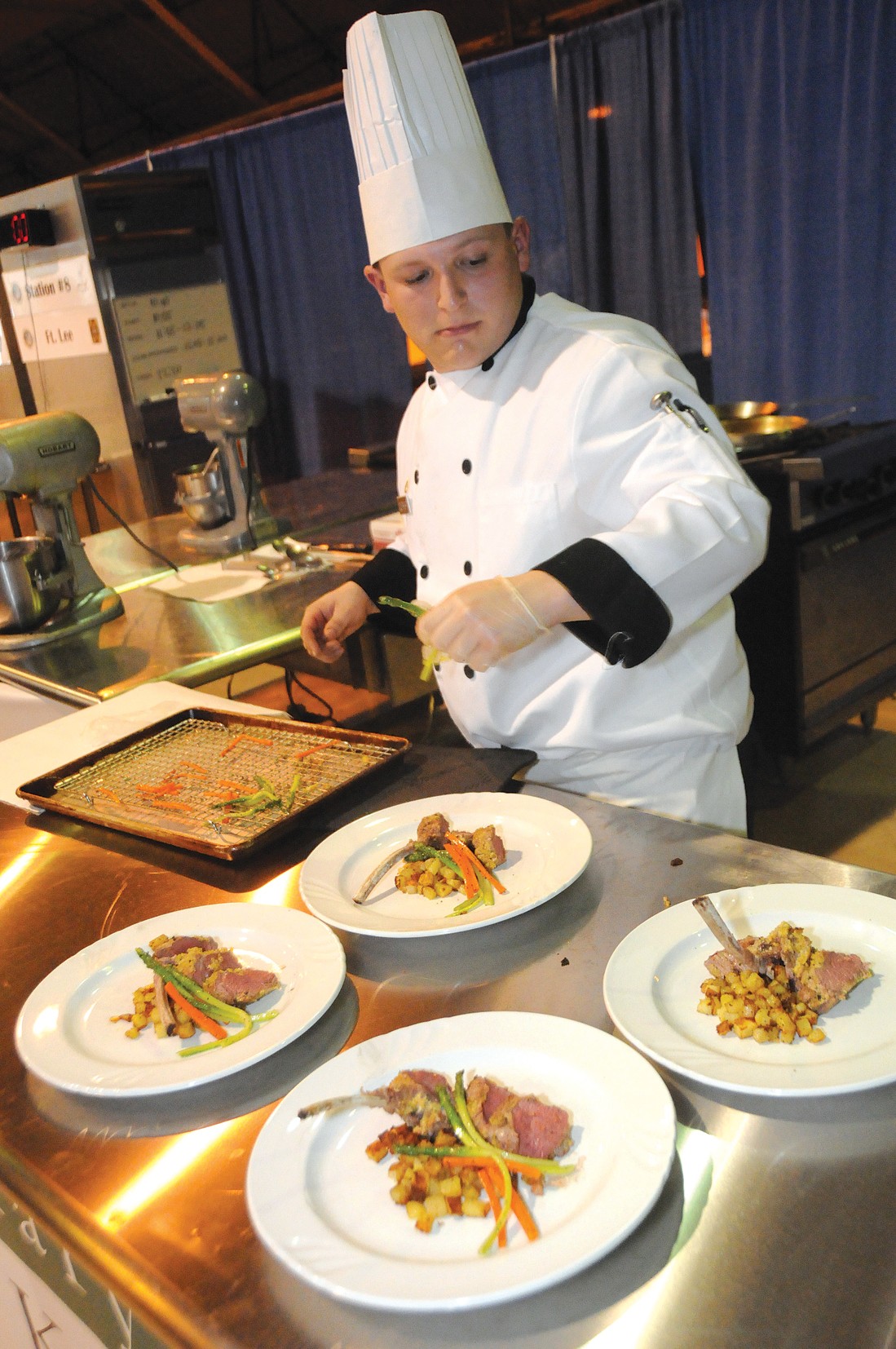
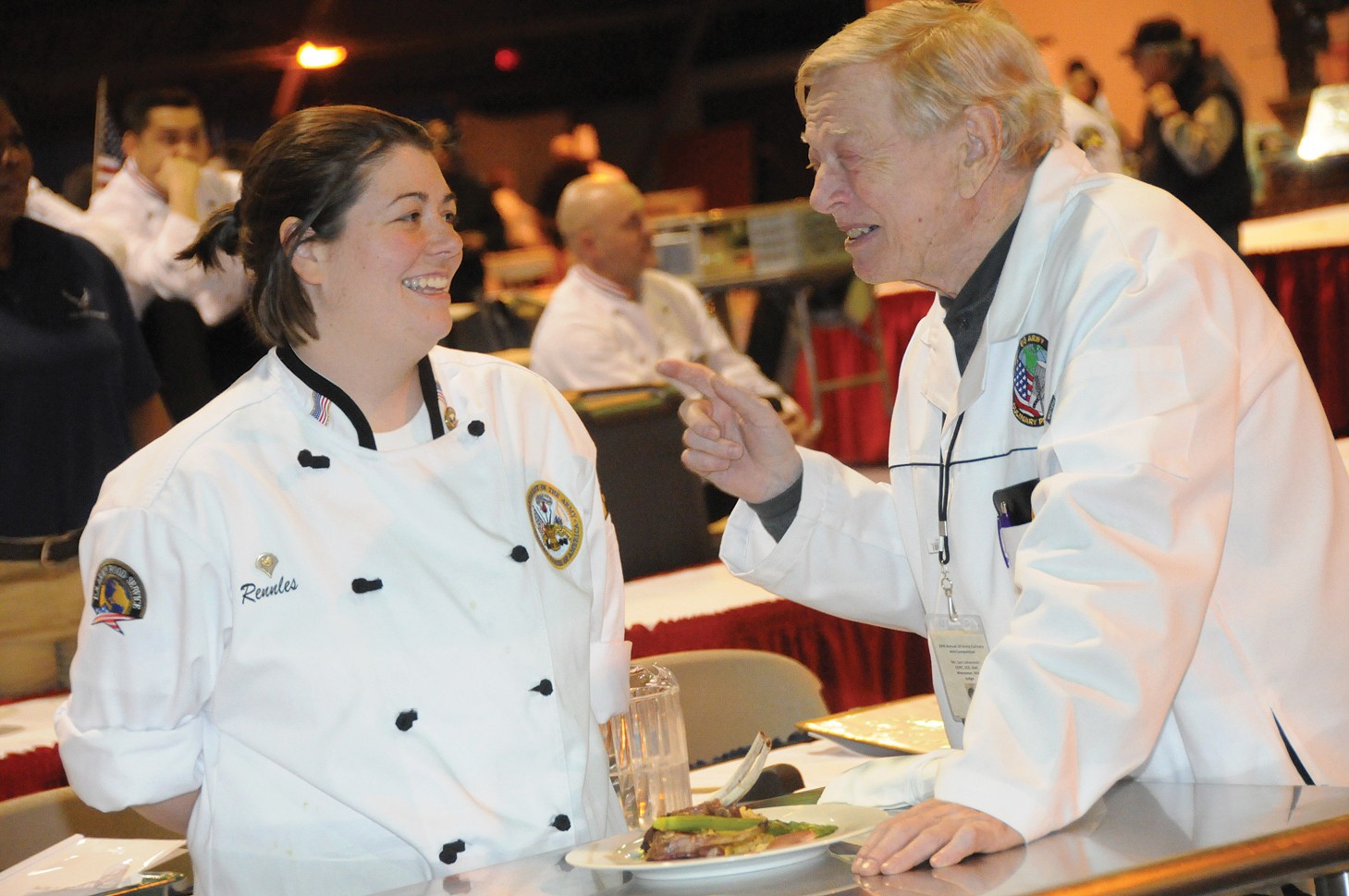
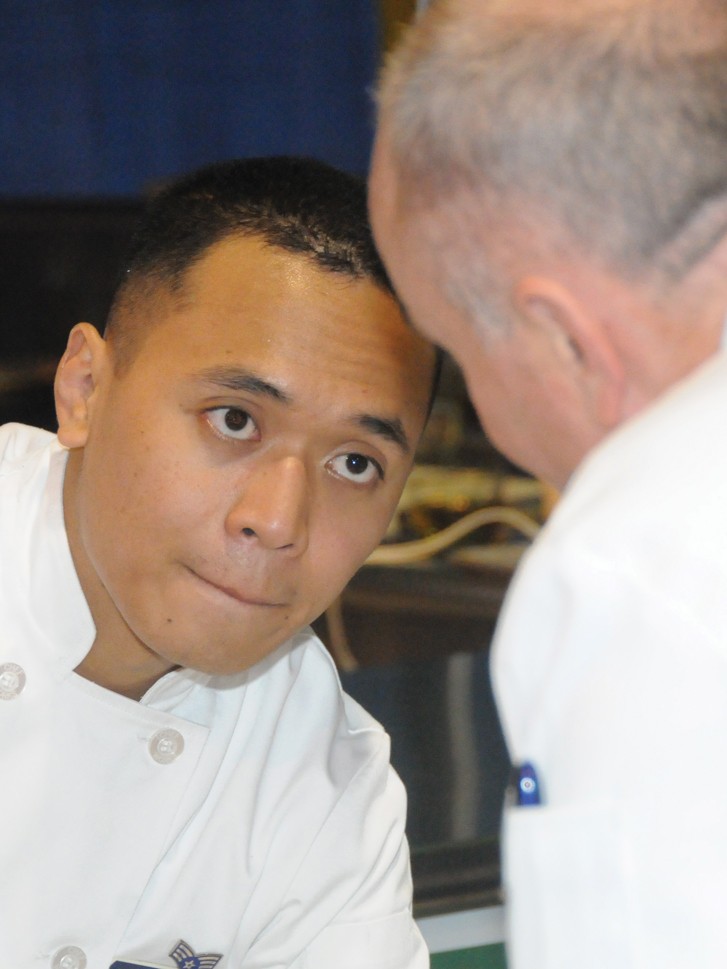
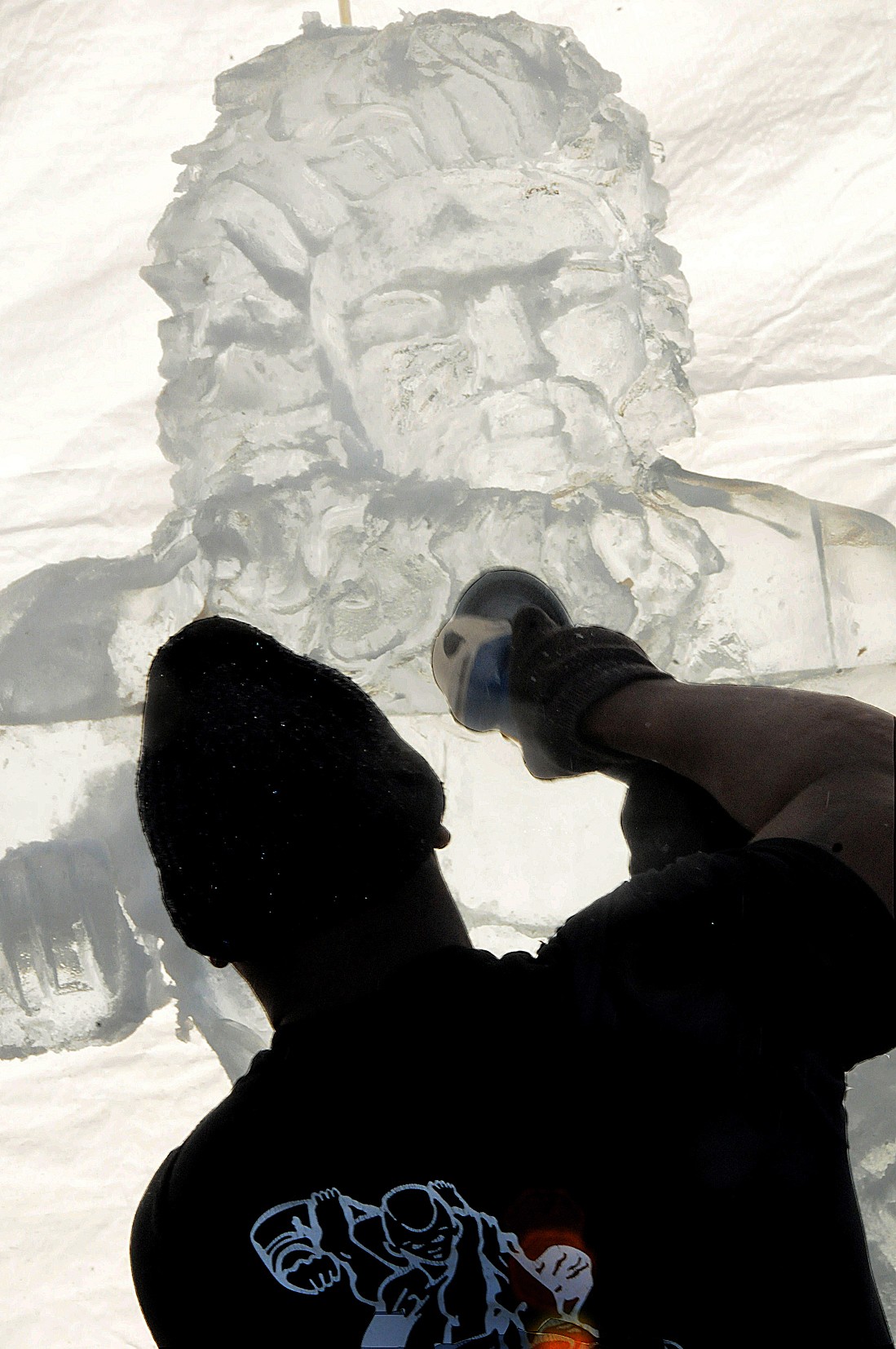
Social Sharing